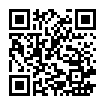Сравнительный анализ опыта переживания пандемии молодежи и пожилых людей на примере Санкт-Петербурга
Научная статья
Аннотация
Литература
2. Келасьев В. Н. Адаптация пожилых петербуржцев к ситуации пандемии коронавируса / В. Н. Келасьев, И. Л. Первова // Успехи геронтологии. – 2020. – Т. 33. – № 6. – С. 1016–1026.
3. Козырева П. М. Особенности поведения пожилых людей в условиях распространения пандемии COVID-19 / П. М. Козырева, А. И. Смирнов // Вестник Московского государственного лингвистического университета. Общественные науки. – 2022. – № 2 (847). – С. 159–167.
4. Сорокин П. С. «Трансформирующая агентность» как предмет исследований и разработок в XXI веке: обзор и интерпретация международного опыта / П. С. Сорокин, А. В. Зыкова // Мониторинг общественного мнения: экономические и социальные перемены. – 2021. – № 5. – С. 216–241.
5. Jensen S. Q. Othering, identity formation and agency // Qualitative studies. – 2011. – Vol. 2. – № 2. – P. 63–78.
6. Mendes Á. et al. “That should be left to doctors, that’s what they are there for!” – exploring the reflexivity and trust of young adults when seeking health information / Á. Mendes et al. // Health communication. – 2017. – Vol. 32. – № 9. – P. 1076–1081.
7. Tarkar P. Impact of COVID-19 pandemic on education system / P. Tarkar // International Journal of Advanced Science and Technology. – 2020. – Vol. 29. – № 9. – Р. 3812–3814.

Поступила: 16.02.2024
Опубликована: 24.04.2024





